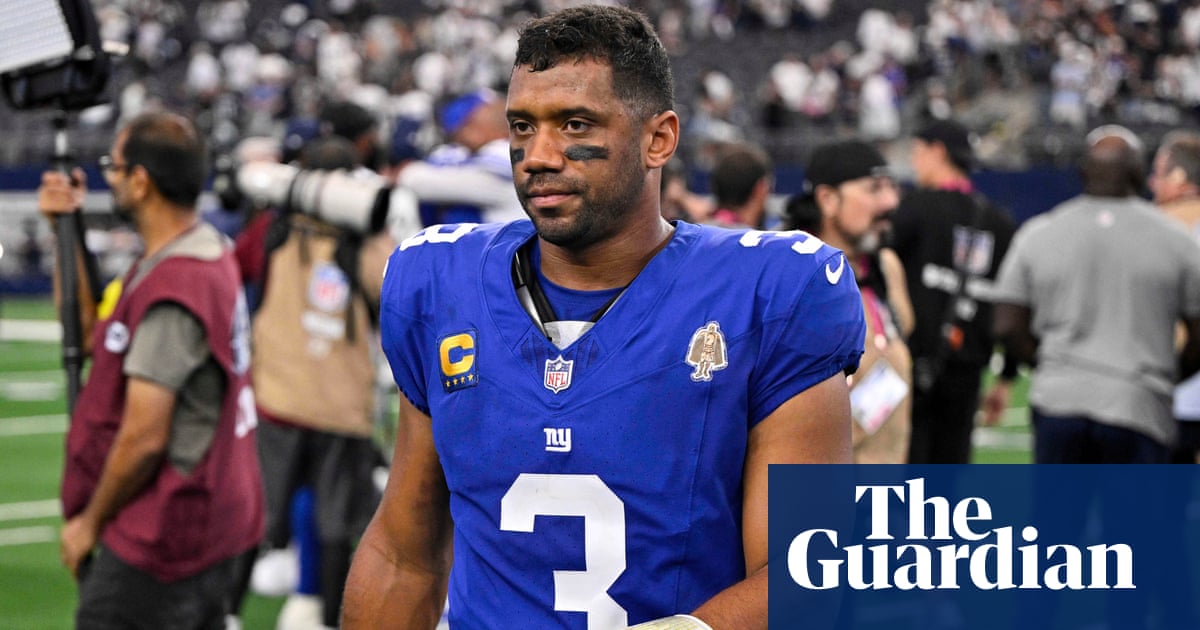Russell Wilson’s NFL journey has been defined by a unique blend of faith, charm, and polished professionalism. Over the years, the quarterback has cultivated a reputation as the league’s quintessential “nice guy” — a player admired for his character, leadership, and positive influence both on and off the field. Yet, paradoxically, this very image of sincerity and wholesomeness appears to have become a liability for Wilson, creating friction with teammates, coaches, and fans alike, and painting him as an increasingly polarizing figure in the world of professional football.
From the outset of his career, Wilson set himself apart as a likable star. As the quarterback for the Seattle Seahawks, he became the kind of figure young fans could idolize and opponents had to respect. However, this amiable demeanor did not always translate into genuine camaraderie or admiration within his own locker room. Former teammates and collaborators have voiced frustration and even bitterness toward Wilson, highlighting an undercurrent of resentment that has grown over time.
Richard Sherman, the standout former Seahawks defensive back turned analyst, has openly criticized Wilson, accusing him of receiving undue favoritism from team management during their tenure together. Sherman’s disdain reflects a broader narrative among some former Seahawks players, who felt that Wilson’s relationship with the front office often came at the expense of locker room unity. KJ Wright, another key member of Seattle’s famed Legion of Boom defense, has expressed feelings of betrayal, suggesting that Wilson prioritized his own interests over team bonds. Even Marshawn Lynch, the famously reserved running back who played alongside Wilson for several seasons, downplayed the quarterback’s significance to him personally. Lynch once recounted having to request Wilson’s contact information from the team’s front office, only to have Wilson return the call from a blocked number, underscoring a perceived emotional distance between them. This is particularly striking given Wilson’s role in leading the Seahawks to their first Super Bowl victory, a milestone many expected would cement his standing among teammates.
Wilson’s challenges in building relationships extend beyond his former Seattle teammates. Sean Payton, the Denver Broncos head coach who inherited Wilson following a high-profile trade in 2022, has also hinted at frustrations with the quarterback. After Denver’s thrilling 33-32 comeback victory over Wilson’s then-team, the New York Giants, Payton praised the Giants’ rookie quarterback Jaxson Dart and revealed he would have preferred to face Wilson later in the season rather than sooner. Payton’s remarks sparked surprise and tension, especially given the massive five-year, $245 million contract Denver had committed to Wilson just a year earlier. Wilson himself responded sharply on social media, labeling Payton’s comments as “classless” and accusing him of exploiting the media for “bounty hunting” — an allusion to Payton’s controversial past with the New Orleans Saints. While Payton later downplayed the comments as not being a direct jab at Wilson, the incident highlighted the growing public scrutiny and interpersonal conflicts surrounding the quarterback.
Wilson’s public persona has long been characterized by a carefully maintained optimism and motivational style that some perceive as overly scripted or robotic. Throughout his decade in Seattle, he often spoke with the polished cadence of a politician on the campaign trail, delivering platitudes and catchphrases that sometimes grated on teammates and fans. His signature sign-offs in interviews — “Go Hawks” in Seattle, then “Let’s Ride” with the Broncos, and later “Here We Go” and “Win the Seventh” with the Pittsburgh Steelers — became emblematic of his earnest, if somewhat corny, approach to leadership and public relations. Attempts to diversify his image, such as adopting the social media alter ego “Mr. Unlimited,” were met with derision rather than admiration, reinforcing perceptions of Wilson as trying too hard to be relatable and cool.
These perceptions are often sharpened when viewed through the lens of Black American culture. Wilson’s wholesome, “aw-shucks” demeanor and lack of stereotypical athlete tattoos clash with certain cultural expectations and stereotypes within the Black community, leading to critiques that he does not fit the mold of the “typical” Black football star. This disconnect has been amplified in discussions within the so-called Black manosphere, where Wilson’s personal life has also come under scrutiny. His relationship with R&B singer Ciara, including allegations that he subjected her to a premarital purity test despite her previous relationship with rapper Future, sparked intense debate and criticism. The revelation that Ciara had included Wilson’s name on

